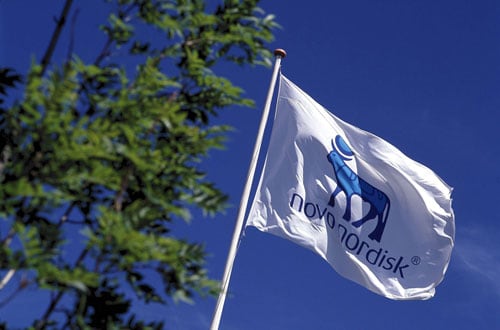
Novo Nordisk’s battle for supremacy in the basal insulin sector opened another front over the weekend as the firm presented real-world evidence of the superiority of its Tresiba brand.
The Danish drugmaker reported findings from its EU-TREAT patient registry study at the American Diabetes Association (ADA) meeting in San Diego on Saturday. It showed that switching to Tresiba (insulin from another basal insulin – mainly Sanofi’s Lantus (insulin glargine U100) or Novo’s own Levemir (insulin detemir) brand – improved blood glucose control and reduced rates of hypoglycaemia.
EU-TREAT found that six months after switching haemoglobin A1c levels (a marker of blood glucose control over time) fell by 0.2% among type 1 diabetes patients and 0.5% in type 2 diabetes. Rates of overall hypoglycaemia were also significantly lower after switching to Tresiba, falling 85% in type 1 and 92% in type 2 patients at six months.
The new results – which reflect how drugs are used in practice rather than within the confines of a clinical study – are firmly in line with the results of the large-scale DEVOTE trial, which also compared the drug to insulin glargine but focused in patients at high risk of cardiovascular disease as well as an earlier trial called SWITCH-2.
Top-line data from that trial was reported late last month and will be presented as a keynote at the ADA meeting later today, when diabetes specialists will be able to compare the two drugs on not only glucose control and hypoglycaemia but also cardiovascular outcomes. Lantus was found to be neutral on cardiovascular events in the ORIGIN study, while Novo said DEVOTE suggested Tresiba was non-inferior to Lantus.
“Our real-world data presented at ADA reinforce what we have seen in the clinical trial programme,” said Mads Krogsgaard Thomsen, Novo’s chief science officer.
After a delayed start in the US market, Tresiba has been steadily gaining ground in the basal insulin market which has been dominated for years by Lantus, a $7bn product at its peak. Latterly sales of Lantus have been hit by competition from other basal insulins as well as biosimilar versions of insulin glargine, including Eli Lilly and Boehringer’s Basaglar which reached the US market last December.
With competition and pricing pressure growing across the board in diabetes, Novo has been forced to trim back staffing levels to reduce operating costs, and the importance of Tresiba to the company in the near-term cannot be overstated.
Thankfully for the Danish company the signs are good. Tresiba sales volumes are ramping up and sales leaped 166% in the first quarter of this year to around $225m.




